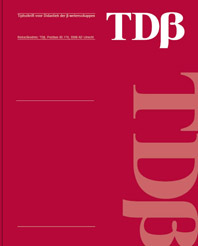(On)terecht lineair redeneren bij het oplossen van fysicavraagstukken door leerlingen van het secundair onderwijs

Tijdschrift voor Didactiek van de Beta-wetenschappen, uitgegeven door het Freudenthal Instituut, Universiteit Utrecht in de periode 1983-2014 |
De Bock, D. Van Dooren, W. Verschaffel, L. Tijdschrift voor Didactiek van de Beta-wetenschappen |
(In)correct linear reasoning in solving physics problems by students in secondary education
A vast amount of research in mathematics education has shown that students of different ages have a strong tendency to apply linear or proportional models anywhere. Now and then, science educators report students’ tendency to assume and impose linear relations in physics, but as far as we know no substantial efforts were undertaken to study this phenomenon systematically. To fill up this hiatus in the science education literature, we conducted an empirical investigation aimed at identifying the competence of 8th- and 11th-graders before and after being taught the relevant physical topics to qualitatively grasp situations in physics, as well as their tendency to quantify that qualitative insight linearly. The results provide an ambivalent picture of students’ overuse of linearity in physics: Although linear reasoning is sometimes used as a default strategy, this study also indicates that in physics the context is taken more into account than is suggested by research on mathematical problem solving.
U moet ingelogd zijn om een reactie te kunnen plaatsen.


